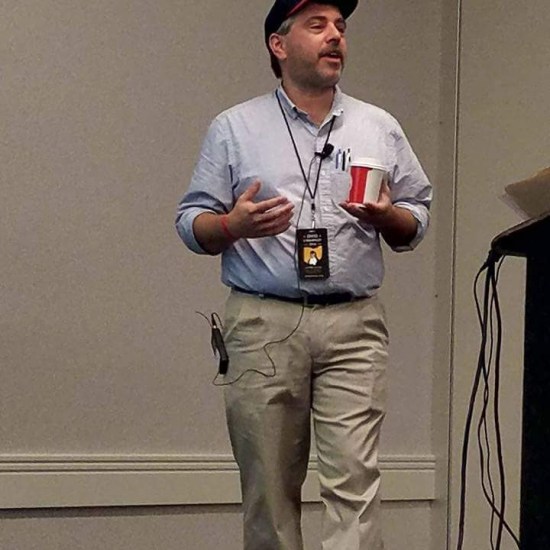Most baseball fans have the image of a “mildly” upset George Brett barrelling toward Joe Brickman after having his home run changed to an out because of a bit too much pine tar on his bat. Rules, at the time, provided the following dizzying logic:
- Rule 1.10(b) stated that excessive use of sticky substances on a bat shall cause it to be removed from the game.
- According to Billy Martin, 1.10(b) made the bat illegal/non-conforming.
- Rule 2.00 stated that a ball hit with an illegal/non-conforming bat was an illegally batted ball.
- Rule 6.06 stated that a batter was out when hitting an illegally batted ball.
Joe Brinkman, the crew chief of the umpire crew, ultimately decided to follow that logic and called Brett out. Turning Brett’s home run into the third out of the inning turned the Royals’ 5-4 lead into a 4-3 deficit. The Royals played the game under protest and ultimately lost 4-3. Brinkman was quoted as saying, “Rules are rules. Rules are all an umpire has to work with.”
The Spirit of the Game
American League president Lee MacPhail reasoned that while the logic was solid and the rules applied, the decision was not in the spirit of the game.
MacPhail did not reject that the bat was nonconforming or illegal. He did think the interpretation and application of the rules was out of place. He decided that Brett had no unfair advantage and, in the spirit of the game, if you hit a home run with no fair advantage, you deserve to have it count. MacPhail used the belief that games should be won and lost on the field, not by tactical technicalities of the rules.
Ultimately, MacPhail used his higher authority to override the umpire’s decision, reinstate Brett’s home run, and have the game replayed. On Aug. 18, 1983, the Royals won the game 5-4. Brett’s reinstated home run was the game-winner. Rule 1.10(b) was modified to correct the error.
Philosopher Ronald Dworkin agrees with MacPhail here. He had two issues with using a rules-based approached to decision-making. Now, Dworkin was talking about legal decision-making and laws, but rules are simply laws for games. First, morality plays a part in the decision-making process. Two, morality has to play a part when edge, or difficult, decisions need to be made. Dworkin, as I related him to baseball, is saying the spirit of the games has to be considered with the rules. MacPhail used these principles when overturning the call. Games should be won based the physical and mental ability of teams and players to overcome the impediments of the rules and their opponents.
Umpiring in the 19th Century
Let’s go back to 1887 and ask Wes Curry, American Association umpire, if he agrees.
In a Louisville Colonels game against the Brooklyn Grays, Reddy Mack crossed the plate and then interfered with the catcher, allowing two of Mack’s teammates to also score. Curry ruled that due to the interference, the runner after Mark was out, and the third runner was ordered back to first base. While the ruling makes sense into today’s game, at the time, the rule stated that base-runners were not allowed to interfere with fielders handling throws. Mack had already scored and was no longer a runner, and no other rule prohibited Mack’s actions.
Curry created a rule for non-baserunners beyond what was written. He used his authority to maintain the spirit of the game. A rule needed to be in place to discourage other players doing the same thing and the spirit of the game should not allow non-base-runners to interfere with fielders. His ruling became rule 7.09(e) which continues to be in place to this day.
Rules Are Meant to be Broken
Clearly, Brinkman and Curry would disagree that “rules are all an umpire has to work with.”
Both Curry and later MacPhail used their authority to override the rules themselves went the rules run up against the spirit of the game. Both rulings also changed the rules of baseball to bring the decisions, retroactively, in line with the rules. Both men involved Dworkin’s authority to apply authority over edge cases of the rules.
MLB needs to revisit these decisions and apply them to the game today.
Following both Curry and MacPhail’s thinking, players involved in the Astros’ cheating scandal could have been suspended even if sign stealing isn’t against the rules. Think if an umpire would have called a strike every time they heard a bang from the Astros dugout. They could have easily justified it by saying games should be won by the players ability, not their ability to steal signs.
Umpires and the league do have more than just the rules to make decisions. They can make decisions more towards the spirit of the game instead of the strict letter of the rules. In a season with new, unique rules, let’s hope they remember they have the authority and use it wisely.
Next week, I’ll apply Dworkin’s theory to the unwritten rules of baseball.


I somehow didn’t know the Brett homer was eventually upheld. Thanks for this